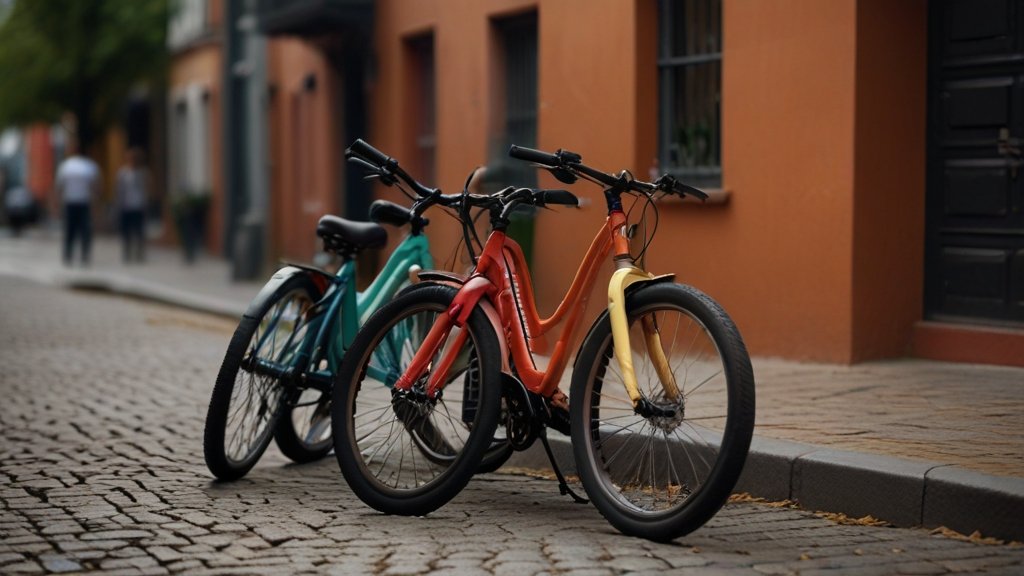Learning how to ride a bike is a timeless rite of passage for many. It’s a skill that not only brings joy and freedom but also serves as a foundation for a healthy lifestyle and eco-friendly transportation. Whether you’re a beginner straddling the seat for the first time or seeking to refine your technique, mastering the art of bike riding requires patience, practice, and a bit of know-how.
In this comprehensive guide, we’ll explore the step-by-step process of learning to ride a bike, covering everything from choosing the right bike to mastering balance and control. This guide will help to get started with bikes including how to ride a dirt bike.

Table of Contents
Choosing the Right Bike
Before embarking on your how to ride a bike journey, it’s essential to select the right bike for your needs. There are numerous variety of bikes available, each designed for a specific purposes. Each designed to serve as your needs. Consider factors such as terrain, intended use, and personal preference when choosing your bike. For beginners, a basic road bike or hybrid bike with flat handlebars is recommended for its stability and versatility.
Safety Gear
Safety will always and should always be your top priority while riding a bike. Before hopping on, make sure to equip yourself with the necessary safety gear. This includes a properly fitted helmet, reflective clothing for visibility, and sturdy closed-toe shoes. Additionally, consider investing in knee and elbow pads for added protection, especially during the learning phase.

Adjusting the Bike
Proper bike fit is crucial for comfort and control while riding. Begin by adjusting the seat height so that when seated, your feet can touch the ground with a slight bend in the knees. Ensure that the handlebars are positioned at a comfortable height and distance from the seat, allowing for a relaxed arm position while riding.
Mounting and Dismounting
Before setting off riding bike, familiarize yourself with the process of mounting and dismounting the bike. Stand on the side of the bike with one foot on the ground and the other on the pedal in the highest position. Push off with your foot on the ground while simultaneously lifting yourself onto the seat and pedaling forward. To dismount, apply the brakes gently, lean the bike to one side, and step off with one foot while keeping the other on the pedal in the lowest position.
Learning to Balance
Balance is the foundation of riding bike. Begin by practicing balance exercises off the bike, such as standing on one foot or using a balance board. Once comfortable, straddle the bike with both feet on the ground and practice balancing by shifting your weight from side to side. Gradually lift your feet off the ground and coast for short distances, focusing on maintaining your balance.

Pedaling Techniques
Pedaling efficiently is key to mastering bike riding. Start by positioning the pedals parallel to the ground with one foot on the pedal and the other on the ground. Push down with the foot on the pedal to propel the bike forward, then switch feet and repeat. As you gain confidence, practice pedaling in a smooth, circular motion, using both legs equally to generate power.
Steering and Turning
Steering and turning smoothly are essential skills for navigating corners and obstacles while riding. To steer, use gentle pressure on the handlebars, keeping your upper body relaxed and your eyes focused on the intended path. Lean your body into the direction of the turn to maintain balance and control. Practice turning in both directions, starting with wide arcs and gradually tightening your turns as you become more comfortable.
Braking Techniques
Knowing how to brake effectively is crucial for safety while riding. Use both the front and rear brakes simultaneously for maximum stopping power, applying gradual pressure to avoid skidding. Practice braking while practicing how to ride a bike in various scenarios, such as at different speeds and on different surfaces, to develop a feel for your bike’s braking capabilities.
How To Ride A Bike In Traffic and Obstacles
As you progress in your how to ride a bike skills, you’ll encounter various traffic situations and obstacles on your rides. Learn to scan the road ahead for potential hazards, such as potholes, pedestrians, and other vehicles. Signal your intentions clearly using hand signals and eye contact with other road users. Practice maneuvering around obstacles safely, using your brakes and steering techniques to avoid collisions.

Maintaining Your Bike
Regular bike maintenance is essential for optimal performance and safety. Keep your bike clean and lubricated, inspecting components such as tires, brakes, and gears regularly for signs of wear or damage. Learn basic repair skills, such as fixing a flat tire or adjusting brakes and gears, to keep your bike in top condition and avoid breakdowns while riding.
Conclusion
Learning how to ride a bike is a rewarding journey that offers both physical and emotional benefits. By following the step-by-step process outlined in this guide and dedicating time to practice and hone your skills, you’ll soon be cruising confidently on two wheels. Remember, patience and persistence are key, so don’t be discouraged by setbacks along the way. Embrace the freedom and joy that biking brings, and enjoy the ride! Most joyous you will embrace it during summer activities in summer time.












